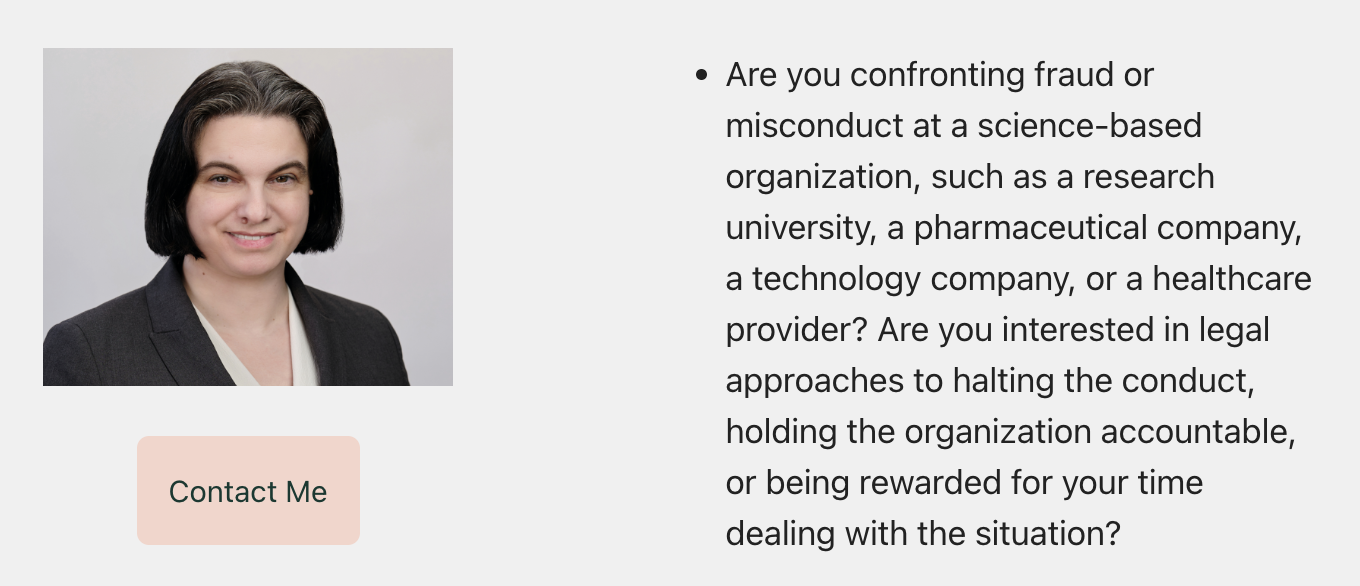Scientific whistleblowers can be compensated for their service
18 Aug 2024Science has a fraud problem. Highly cited research is often based on faked data, which causes other researchers to pursue false leads. In medical research, the time wasted by followup studies can delay the discovery of effective treatments for serious diseases, potentially causing millions of lives to be lost.
Unfortunately, researchers who witness this type of fraud are often reluctant to speak up. This isn’t surprising given the incentives. Whistleblowers can face pressure to stay silent, both from colleagues and their institutions.
To help correct the incentives, Ben Laundau-Taylor suggests that science could borrow an idea from the US financial system, where an SEC bounty program pays whistleblowers 10-30% of the fines imposed by the government.
By all accounts, the SEC whistleblower program has been a success. Not only has it uncovered dozens of cases of fraud, it has also shifted the culture in finance from a whistleblower-stigmatizing culture to a whistleblower-normalizing culture. From the Wall Street Journal:
Yampolsky said that one change in recent years is that the whistleblower label on individuals doesn’t carry the same stigma as it did in the past and that many foreign regulators … are acknowledging the value of whistleblowers and the assistance they provide in aid of enforcement efforts.
“It’s a growing acceptance of the notion that people should come forward and there is nothing wrong with motivating people financially—what you are really doing is providing insurance for the risks taken to their life and careers,” he said.
The SEC program has been so successful that just last week the Department of Justice announced it would be copying the model for its own investigations. The idea is even spreading internationally.
Could the DOJ extend the program to scienctific fraud? I hope that one day it will. But in the meantime, I would like to spread the word that there is already a way for scientific whistleblowers to receive financial compensation for their service, one that few scientists know about.
Under the qui tam provisions of the False Claims Act, whistleblowers may sue on behalf of the government and share between 15-30% of any recovery or settlement. In the case of scientific fraud, the whistleblower would sue fraudulent researchers or their institutions on behalf of defrauded agencies like the NIH or NSF. In this way, the law acts like a whistleblower incentive program.
The False Claims Act has been used for this purpose before. In 2019, a whistleblower used it to expose Duke University for falsifying and fabricating data used in 30 grant applications. As compensation, the whistleblower received millions of dollars from the settlement.
I suspect that many young researchers have witnessed scientific fraud but do not feel empowered to speak up, for fear that doing so may harm their career or otherwise be too costly. If any of those researchers are reading this and want to make science work more honestly and with better processes1, you should know that the False Claims Act can compensate you for the financial risk you take on, and that there are law firms specialized for whistleblowers that would happily do the difficult work for you. This would not be a lonely endeavor.

Figure 1. Screenshot from a law firm specializing in scientific whistleblowing. These firms typically work on contingency, which means they only get paid if the case succeeds.
Critics might say it’s unseemly for whistleblowers to get paid, particularly when the mechanism requires them to initiate a lawsuit, as in the case of the False Claims Act. I understand that feeling. But I also think it is the substrate of an unhealthy stigma. Science is better off if whistleblowing is more normalized.
Other critics might worry that ambiguous cases of p-hacking could be caught up in lawsuits. But the law is clearly restricted to fabrication and falsification, not murkier forms of misconduct.
The False Claims Act is not an ideal way to reform science. The SEC model would be a better and more orderly way to compensate whistleblowers, and there are even more promising ways to encourage high quality, reproducible science. But in a world where fraudulent researchers are hardly ever reported, we should empower whistleblowers with whatever tools we have.
Special thanks to Ivan Oransky for discussions about this post.
1In addition to exposing fraudulent research and providing some deterrent to future fraud, the False Claims Act incentivizes universities to take internal whistleblowers more seriously (similar to finance). When Harvard took seriously its internal whistleblowers in the 2017 stem cell scandal and promptly reported the issue to the government, the university received relatively small penalties from the False Claims Act. But when Duke tried to cover up its pulmonary research scandal, the government imposed far steeper penalties, even though the magnitude of fraud was similar to the Harvard case.
